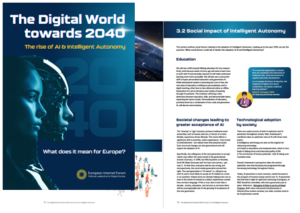
8 April 2025 (18:00-19:00 UK time)
VIRTUAL CONVERSATION
Digital World towards 2040 – Annual update
Speakers: Ajit Jaokar, Oxford University & Simon Staffell, Microsoft
Moderator: Frank Nigriello
Introduction
One year after the publication of Digital World Towards 2040 in April 2024 and its UK launch at our IN2030 event, this session focused on the short-term consequences of the AI revolution, given the extremely rapid and accelerating pace of change. While 2040 remains a critical milestone, the sheer pace of technological change makes long-term forecasting increasingly difficult. The discussion explored what we can expect with greater certainty in the near term, particularly the impact of AI and AGI on economies, governance, and society.
The speed of technological breakthroughs is already reshaping industries, with significant implications for businesses, workers, and policymakers. The rise of AI agents will transform how decisions are made, increasing automation across sectors, and making continuous skills adaptation an urgent necessity. At the same time, regulatory and policy challenges are becoming more pronounced. Recent summits have highlighted concerns that international cooperation designed to ensure responsible AI development might be weakening. Policymakers must urgently consider how to shape regulatory responses that strike the right balance between fostering innovation and ensuring security.
Nevertheless, one thing is clear: the introduction of AGI is likely to be transformative, and come sooner than expected. This session provided a clear-sighted assessment of the near-term future, identifying the most pressing developments and helping to outline what immediate strategies policymakers and businesses might need to consider.

Click here to read full report from 2024 as pre-reading for the event.
AI summary of session
The discussion examined AI's trajectory, including technological advancements, public perceptions, and implications for work and society. The conversation explored key themes such as the increasing adoption of AI, public concerns about AI's societal impact, the rapid acceleration in AI capabilities, multimodal AI applications, the concept of meaningful work enhanced by AI, and strategic responses required for responsible AI adoption.
Key Points
Adoption of AI:
- Approximately 75% of enterprises expected to adopt AI within the next 12 months.
- AI achieving human-level accuracy in image and speech recognition.
Public perceptions & concerns:
- Pew Research reports almost 80% of surveyed Americans fear AI could cause more harm than good.
- Over 60% predict AI leading to fewer jobs, with nearly two-thirds concerned about diminished human interactions.
Acceleration of AI capabilities:
- The timeframe for achieving Artificial General Intelligence (AGI), defined as AI possessing human-level capabilities across multiple domains, is accelerating. Predictions now suggest this could happen within the next 5-10 years.
- AI increasingly supports high-level intellectual tasks, evidenced by AI-influenced Nobel Prize-level scientific discoveries.
Multimodal AI & practical applications:
- Multimodal AI (combining text, images, and actions) significantly enhances AI's utility, demonstrated by the rapid creation of applications from visual sketches.
- Practical AI applications are emerging rapidly, assisting with analytical tasks, education, creative industries, and programming.
AI and meaningful work:
- A shift towards semi-autonomous AI collaborations aims to enhance rather than replace human roles.
- AI viewed as enhancing human agency and productivity, enabling "super agency"—individuals scaling their capabilities significantly through AI assistance.
Highlighted quotes
- "75% of enterprises will be using AI in the next 12 months."
- "Almost 80% of those Americans surveyed felt that AI could do more harm than good."
- "Within the next 5-10 years, human abilities in multiple domains will be surpassed by AI."
- "Multimodal AI allows entirely new ways to address problems."
- "The worst AI systems we’re going to use are the ones we're using today."
Conclusion
AI is rapidly evolving, transforming industries and redefining human roles and capabilities. Despite notable public apprehension about AI's impacts, the conversation highlighted practical strategies for responsibly integrating AI, emphasising education, targeted deployment in low-risk scenarios, and fostering meaningful, collaborative human-AI partnerships. Moving forward, addressing public concerns, clarifying practical benefits, and ensuring responsible AI use are crucial to maximising AI's societal and economic potential.
Q&A session summary
The Q&A session focused primarily on the skills employees need to successfully adapt to an AI-enhanced economy.
Key points discussed:
Employment impact:
- Recognition of significant job displacement alongside the creation of new roles.
- Necessity for current employees to transition without necessarily pursuing advanced technical qualifications.
Critical employee skills:
- Human-centric skills: Traits such as empathy, creativity, and uniquely human consciousness highlighted as essential.
- Adaptability and flexibility: Vital to effectively leverage AI tools and remain competitive across various sectors.
Integration of AI in everyday tasks:
- Encouraging practical acceptance and proactive incorporation of AI into daily professional tasks.
- Examples included AI's application in education and personal productivity, illustrating how to enhance, rather than replace, human capabilities.
Challenges of change management:
- Acknowledged human resistance to technological disruption.
- Highlighted the importance of distinguishing between fundamental human values worth preserving and outdated practices that AI could beneficially replace.
Highlighted quotes:
- "Millions of roles will disappear and millions of new roles are predicted to appear."
- "Don’t try and do what the AI is going to do better than you. Do the things AI can't."
- "Adaptability and flexibility to change will be crucial."
- "The smart approach is to integrate AI into your tasks, making AI coaching part of the learning process."
Conclusion
Adapting to an AI-driven workplace requires an emphasis on human-centric skills and agility in responding to technological advances. Successfully integrating AI depends on distinguishing between valuable human practices and those that can be improved with AI, thus enhancing overall productivity and maintaining essential human values.
Speakers' bios

Ajit Jaokar’s work spans research, entrepreneurship, and academia relating to Artificial Intelligence (AI) with Cyber-Physical systems, He is the course director of the course: Artificial Intelligence: Cloud and Edge Implementations at the University of Oxford. He is a visiting fellow in Engineering Sciences at the University of Oxford. He is also working on a book to teach AI using mathematical foundations at the high school level.

Dr Simon Staffell is Director of Government Affairs at Microsoft, where he addresses a range of public policy issues related to technology and innovation and has been closely involved in work on AI policy and governance issues with UK and other governments over the past two years. He is a visiting Research Fellow at Kings College London and the RUSI think tank. Simon previously served in the UK government, holding senior appointments in the Foreign and Commonwealth Office, Home Office and Cabinet Office, and postings in Cairo and Washington DC. He was awarded his PhD in politics from Sheffield University in 2010 and was previously an Adjunct Professor at Georgetown University in Washington DC.

Frank Nigriello is a writer, editor, and management consultant with a strong background in working with both ‘blue chip’ companies and SMEs. He was until recently Director of Corporate Affairs for Unipart, the global manufacturing, logistics and consultancy group headquartered in Oxford, Chairman of Oxfordshire Business First and chair of the B4 business network. In 2014, he was named as HRH The Prince of Wales’s Responsible Business Ambassador for the South East. He is a founder member of IN2030. Frank began his career as a journalist, first in New York then in the UK. He joined IBM UK and later joined Barclays PLC as its first Head of Organisational Communications. Frank has been chairman of Oxfordshire’s Economic Partnership and chaired the county’s Employment and Skills Board. He was Chair of the South East Advisory Board of Business in the Community and a member of the Oxford Strategic Partnership board. He is currently leading an innovation project with SMEs and has edited a book about Oxfordshire entrepreneurs.
